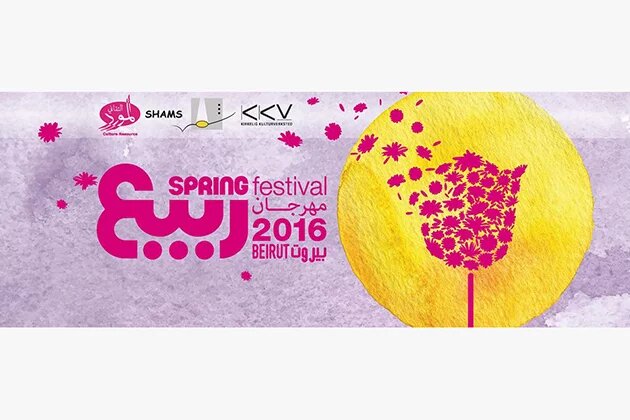
BEIRUT: Spring has returned. That is, SHAMS (the Cultural Cooperative Association for Youth in Theater and Cinema), Cultural Resource and partners have announced the program of the 2016 Spring Festival.
This year the monthlong biennial will see venues around the country host artists from around the world – China, India and Mali – and from the country and region.
“This is a very important opportunity for us to get to know culture and arts that rarely come to Beirut,” said SHAMS President Fadi Abi Samara during Tuesday’s news conference at the Golden Tulip Hotel.
The festival’s international aspect reflects the specific theme of the 2016 edition.
“This year’s festival is organized around the subject of borders,” Culture Resource’s Rana Yazaji said, “the borders of this region that keep artists incarcerated and unable to move around the world.”
Festival codirector Hanane Hajj Ali gave a particularly passionate speech on how important it is to defend artistic freedoms, especially in light of the current situation in the Arab world.
“What is happening around us is deterioration on all levels,” Hajj Ali said. “The position of culture is really pitiful.”
The festival’s opening performance, on April 28, is telling of the festival’s breadth. “Circle,” “October” and “First Ritual,” a triple bill of dance works choreographed by Beijing Dance Company/LDTX, will feature 13 dancers on the stage of Dawar al-SHAMS.
The May 8 program at Dawar al-SHAMS will see a performance by the classical Indian dancers of Kerala Kathkali Center while, a few days later on May 14, the venue will host Malian quintet Bassekou Kouyate and Garana Roots.
Another festival highlight, hosted by Sioufi’s Onomatopoiea on May 16, will be a pair of shows by two multi-instrumentalists. Turkish Kurd Ferhat Tunc and Turkish Ertan Tekin will perform traditional music of their home with Ahmad al Khateeb joining on percussion.
Hajj Ali says this year’s festival is hosting discussions on social activism and the risks posed to artists. On May 3, Beirut Art Center will host a panel discussion on these difficulties as well as steps that can be taken to protect artists without sacrificing their creative integrity. “We want to be a platform to define priorities and discuss issues,” Hajj Ali said. “It is a golden opportunity for international artists to be present.”
From May 3-7, Tania El Khoury’s “Gardens Speak” interactive sound installation will be on display at Station, in Jisr al-Wati.
Its imagined narration tells the story of ten individuals buried in Syrian gardens.
Famous for spreading international awareness on issues in the Middle East, Syrian-American hip-hop artist Omar Offendum will appear at Radio Beirut on May 11.
Dawar al-SHAMS will host the festival’s first theater piece on May 7 when Kuwait’s Sulayman al Bassam presents a series of monologues on the Arab Spring. A few days later (May 12-13), the venue will host Syria’s Oussama Ghanam’s “Class,” an adaptation of Tennessee Williams’ “Glass Menagerie” that channels the complex effects of the Syrian Civil War.
The Tayyouneh theater space will also host concerts by Tunisian violinist Dima Orsho, with Syrian soprano Dima Orsho and clarinetist Kinan el Azmeh (April 30) as well as French-Tunisian Yacine Boulares (May 21). Two fusion bands, Tunisian Gultrah Sound System and Algerian-Canadian Labess will share the stage of Metro al-Medina on May 22.
Lebanese visual arts performing group Collectif Kahraba will be participate in two unique shows. The first, at Dawar al-SHAMS on May 5, is “Landscape of Our Tears,” an adult puppet performance directed by Eric Deniaud from a text by Romanian author Matei Visniec. Hosted by Nabatieh’s The Spot cinema on May 23 and Tyre’s Al-Hamra Theater on May 24, Kahraba’s “Origin of a Tale” incorporates live clay sculpting.
Complementing the Spring Festival’s performance program, Cinema Metropolis-Sofil will host a screening cycle focusing on regional talent. The cycle includes three works by Iraqi filmmakers – “Homeland: Ground Zero” by Abbas Fahdel, “In the Sands of Babylon” by Mohamed Al Daradji and Hisham Zaman’s “Letter to the King” – as well as Tunisian director Fares Naanaa’s “Borders of Heaven.”